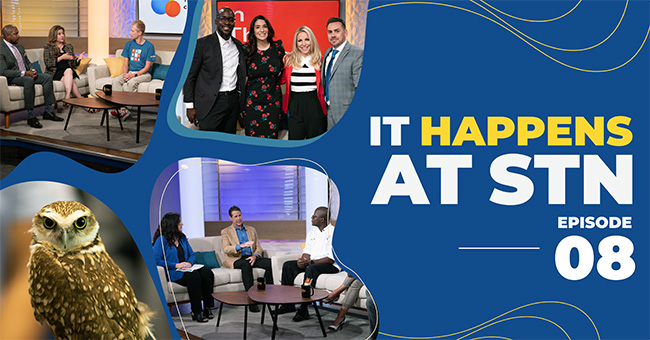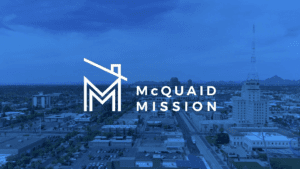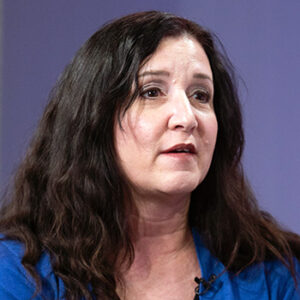There is no easy solution for solving homelessness. Part of the STN mission is to continue bringing leaders and solutions-based programs to the table and focus on creating repeatable, positive outcomes.
Routinely, the lack of available money can be a major obstacle when it comes to achieving that goal. Grants aren’t always easy to come by. And while donations are key to a non-profit’s survival, they often can’t solely fund programs at scale.
So, how does a community-focused organization like UMOM create, maintain and grow its own revenue stream?
For the May installment of the McQuaid Mission, CEOs Amy Schwabenlender from the Human Services Campus and Jackson Fonder from UMOM were joined on stage by UMOM Chief Strategy Officer Monique Lopez and UMOM Homegrown Training Coordinator Chef Steven Wimbley.
They discuss finding opportunities for revenue creation, how UMOM’s Helpings cafe functions and how the cash flow it creates impacts vital outreach programs.
Watch the McQuaid Mission Action Panel
Action Panelists
Jackson Fonder
CEO – UMOM
Monique Lopez
Chief Strategy Officer – UMOM
Steven Wembley
Chef – UMOM/Helpings Cafe
Amy Schwabenlender
CEO – Human Services Campus
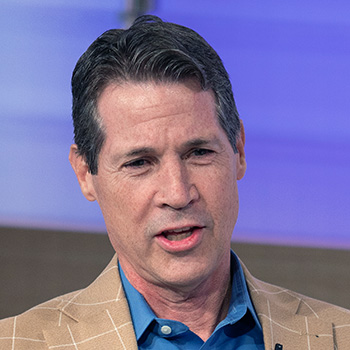
Mission Critical
We’re all about the mission. We’re mission-driven. When you think about it, every dollar that the cafe and the catering operation raises goes back into UMOM programs and services. All of this is in an effort in the greater spirit of supporting our families and ending their cycle of homelessness.
Talented Leaders
The future of this program is crazy high. We’re about to sign a contract that’s going to practically double the revenue in that area. Plus we’ve got other opportunities. We have the systems and the processes in place. You have to have that to scale.
Next, you’ve got the leadership in the Chief Strategy Officer, Monique [Lopez]. With her, she’s got Edwin who oversees the cafe and all the dining operations. He knows how to run a business, but this guy also has all of the ideas, [and] a lot of different options. He just gets stuff done.
Good Match
When you combine that with the fact that our participants have talent and they’ve got the desire to not only work, but to get out of their situation, that is a nice marriage.
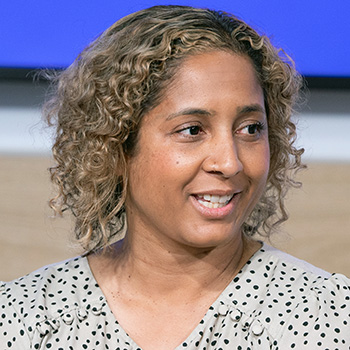
Training Ground
We’re really fortunate that our cafe and catering business is co-located in our main, shelter campus. So what we’re able to do beyond just provide catering, we’re able to use Helpings as a training ground for clients going through our program. We offer a six-week culinary enterprise program where there’s access to skills around the front of the house, the back of the house, knife skills, customer service, and that sort of environment.
We also operate a full-service residential dining kitchen [where] our students can also practice. It’s a really unique opportunity to not only make money but also help train clients who are all wanting to move on with their lives after their time at UMOM.
Open Minds
I think one thing that we’ve probably all learned in the last several years is to be incredibly creative when it comes to generating revenue. The early stages of Helpings Cafe [we] were literally just the seven-to-three, Monday-through-Friday operation, and we catered off of our regular menu. Then we just really started to open our minds to we can cater nights and weekends, we can do special events, [and] we can find different ways to generate revenue.
There have also been new opportunities for our students to learn new skills that we didn’t really offer before. Large-scale caterings are different than line cook opportunities. So it’s really just been a true opportunity to open our minds to whatever was possible before. We sort of let that go and moved on to bigger things.
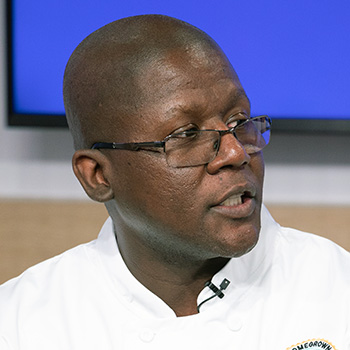
Job Ready
My main goal is to get them trained so that they’re able to go out and get a job. What we do is we make sure that they get the full training from beginning to end as far as sanitation, knife skills, and those things.
Next Step
The other operation of my job is to make sure that they actually [are] collaborating with other companies to get them employment. That’s been a big hit for us. We do big graduation celebrations and things of that nature. At the end of the day, we’re just there to make their lives better.
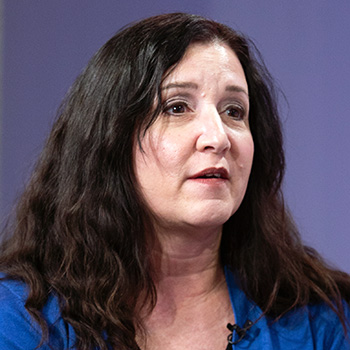
Double Benefits
It’s a double bottom line: it helps the organization and as a nonprofit 501c3s we’re constantly asked by funders or potential funders, how are you going to have sustainable revenue? Creating a program like this is a way to have sustainable revenue and it helps the people going through the program.
Not Perfect
It still doesn’t work for everyone. It doesn’t work for every 501c3 to have the entrepreneurial skills to essentially start up a business that your organization hasn’t been doing before. And not everyone who falls into homelessness can gain employment and go off and afford rent on their own.
Housing Problem
So I’m on a current mission to ask everyone who’s interested in housing and homelessness to read a new book by Greg Colburn called Homelessness is a Housing Problem. It gets to the systemic issues that are really related to the housing market. It’s very easy for us to talk about individuals and what their challenges are. As we’ve talked about in this show, we talk about common themes of why people are homeless. If we really want to solve homelessness we have to look at why in Maricopa County do we have the numbers that we have and how does that really tie back to the housing market?


